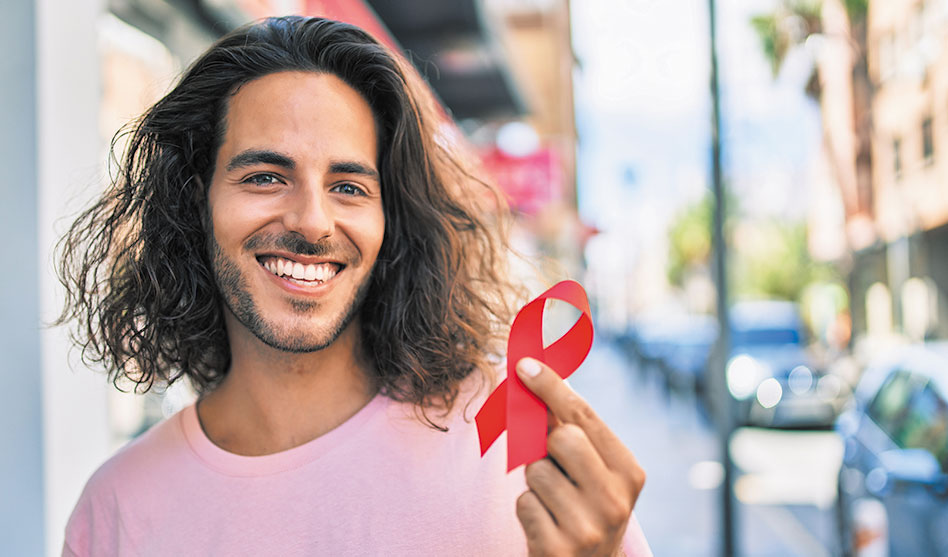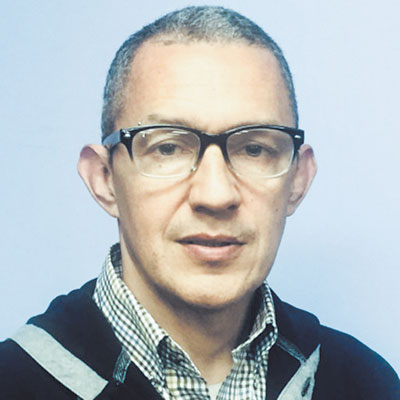Study: HIV cases continue to rise in Latinx communities

Latino health activists say there is a need to adapt HIV treatment in Latinx communities
KAMILA VARGAS GONZALEZ | Intern at Dallas Voice
[email protected]
For Javier Enriquez of West Dallas, experiencing unstable health care is nothing new, especially when it comes to HIV treatment. Add to that homophobia in his community and fear and distrust of the system, which make it even harder for him to get tested for the virus. “The first time I got tested, I was 25,” he says.
Liv Mortel also had difficulty getting tested in Red Oak, a suburb of Dallas/Fort Worth where they grew up. “(For Latinos) everything sexual is a big taboo. It’s kept top secret,” Mortel explained. “I had to leave my community.”
According to the CDC, the estimated number of HIV cases in the United States decreased by 12 percent between 2018 and 2022. However, in 2022, HIV diagnoses among Hispanics/Latinos increased by 17 percent.

Natalie Sanchez
And in 2021, the Dallas County Health and Human Services Department reported a 30 percent increase in cases among men and 6.5 percent among women.
“We’re seeing the intersection of many different problems occurring simultaneously,” said Daniel Castellanos, vice president of research and innovation at the Latino Commission on AIDS. “There are some areas, like in the South and particularly in Texas, where multiple factors are at play.”
According to the Latino Commission of AIDS at the Institute for Latino Health Equity, 73.8 percent of HIV cases among Hispanics in the United States in 2021 will occur in the South and West.
“We underfund prevention in this country,” explains Evelio Salinas Escamilla, senior research fellow at the Latino Commission on AIDS. “Access to screening for these types of services is rare, so you never really find out what you’re experiencing or what you’re having symptoms of until it’s too late.”
According to a KFF analysis, only three percent of the $43 billion in U.S. federal funding for HIV went to prevention in 2022.
“Funding needs to be flexible enough to allow communities to develop their own strategies and make decisions about how to address their needs based on their demographic makeup, availability of services and availability of providers,” Castellano explains. “Funds need to be distributed in a way that takes context into account.”
Health activists seek consistent and redistributed funding and accessibility for diverse Latino communities to enable easy HIV care.
In 2014, Prism Health North Texas developed and implemented Viviendo Valiente, a Dallas-based program aimed at reducing HIV disparities in the Latino community, with a focus on people of Mexican descent. The program provided people with access to HIV and STI care, health education, and health literacy in individual, group, or community-based interventions.
The program was supported by the Ryan White HIV/AIDS Program, Special Projects of National Significance (SPNS) Culturally Appropriate Interventions of Outreach, Access, and Retention Among Latino/a Populations Initiative. The program provided $1,489,500 to be awarded between the years 2013 to 2019 at 10 different sites across the United States.
“It’s important to be able to provide culturally and linguistically appropriate care and services,” said Fernie Sanchez, chief clinical officer for Prism Health North Texas. “What works for one population may not work for another. That’s what we’ve really focused on here at Prism Health North Texas.”
According to Target HIV, at the individual level, 74 percent of program participants were able to continue receiving HIV treatment within a year, and at the community level, HIV testing among Latinos increased from 444 clients in 2014 to 721 in 2017.
“We get money for a particular project and then it gets cancelled and the focus fades,” Sanchez explains. “We have to be consistent with our message and keep getting it out there – we have to stay present and remind people that HIV is still here.”

Daniel Castellanos
The program may have been discontinued after 2019, but Sanchez points out that what Prism Health North Texas learned from Viviendo Valiente still stands.
Prism Health North Texas offers prevention services such as HIV/STI testing, pre-exposure prophylaxis medications, and free condoms at each of its four locations: Oaklawn Health Center, 2801 Lemmon Ave. #200; Oak Cliff Health Center, 219 Sunset Ave. #116-A; South Dallas Health Center, 4922 Spring Ave.; and Worth Street Health Center, 4004 Worth St. #200.
Outreach work in Latino communities continues in other ways as well. Natalie Sanchez, director of the UCLA Los Angeles Family AIDS Network, is committed to creating a multilingual online outreach platform that Latino communities can interact with. Sanchez’s best known work is Sin Vergünza, a telenovela web series that addresses HIV in Latino families and reflects the stories of patients she has worked with in clinics. She wrote, created and is the executive producer of the series.
“We developed the series with the intention of making it entertaining and relatable and … to convey to the viewers of the series what we see in the clinics,” said Natalie Sanchez.
“Because of my recent work with women living with HIV, I have a team and we have a podcast called Confessions, HIV-positive Women – some of it is in English and some of it is in Spanish, (and) our third season will be an entirely Spanish-language season.”
Over the years, the Latino community has continually responded to programs and opportunities that are culturally interesting, readily available and easily accessible to them. “Building real trust with marginalized communities takes a lot of investment and consistency,” Enriquez said.
For more information about the Latino Commission on AIDS, visit LatinoAIDS.org; For more information about Prism Health North Texas, visit phntx.org; For more information about Viviendo Valiente, visit Targethiv.org; To hear the confession, HIV+ women, visit Confessionshiv.buzzsprout.com; To see Sin Vergüenza, visit Altamed.org.



